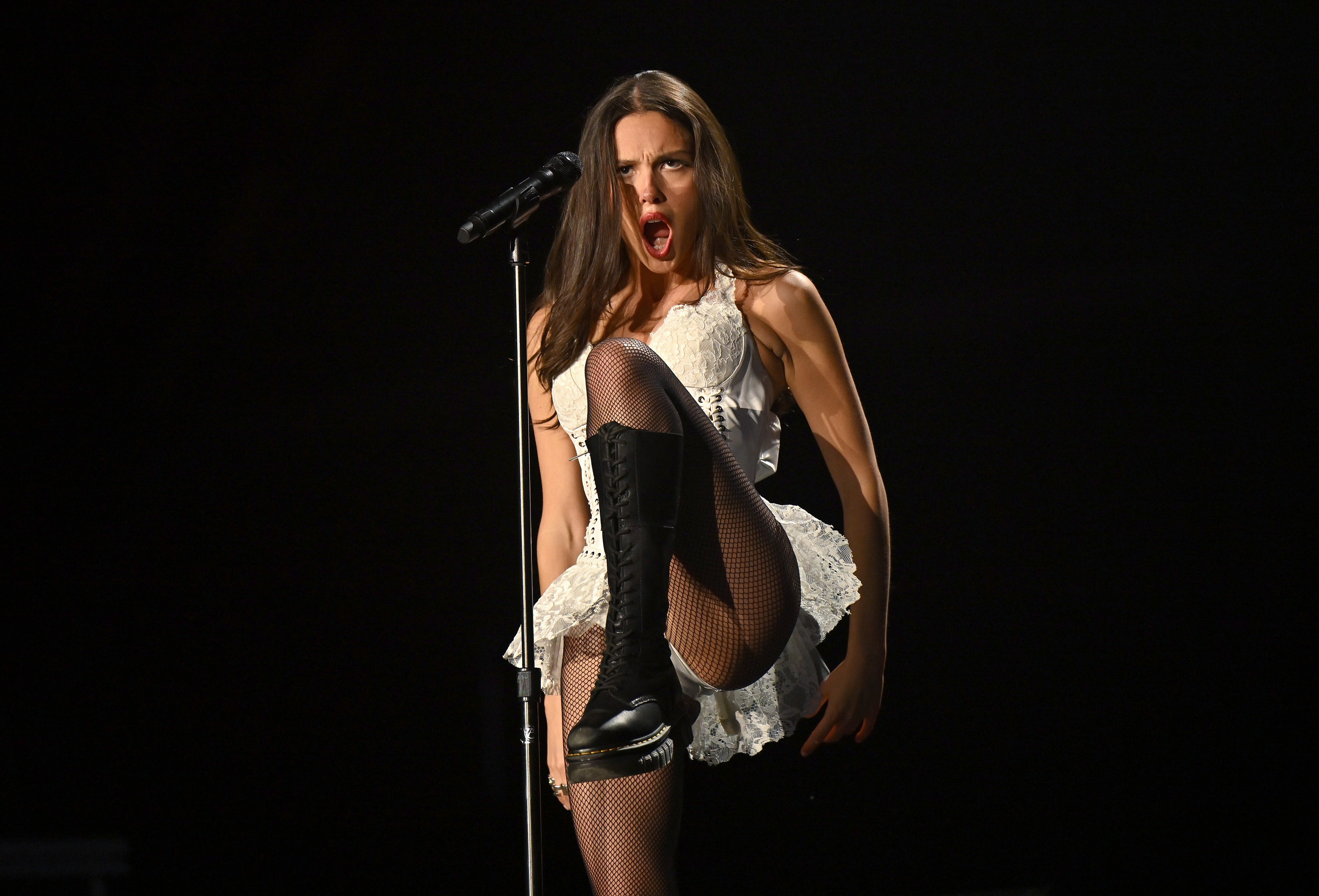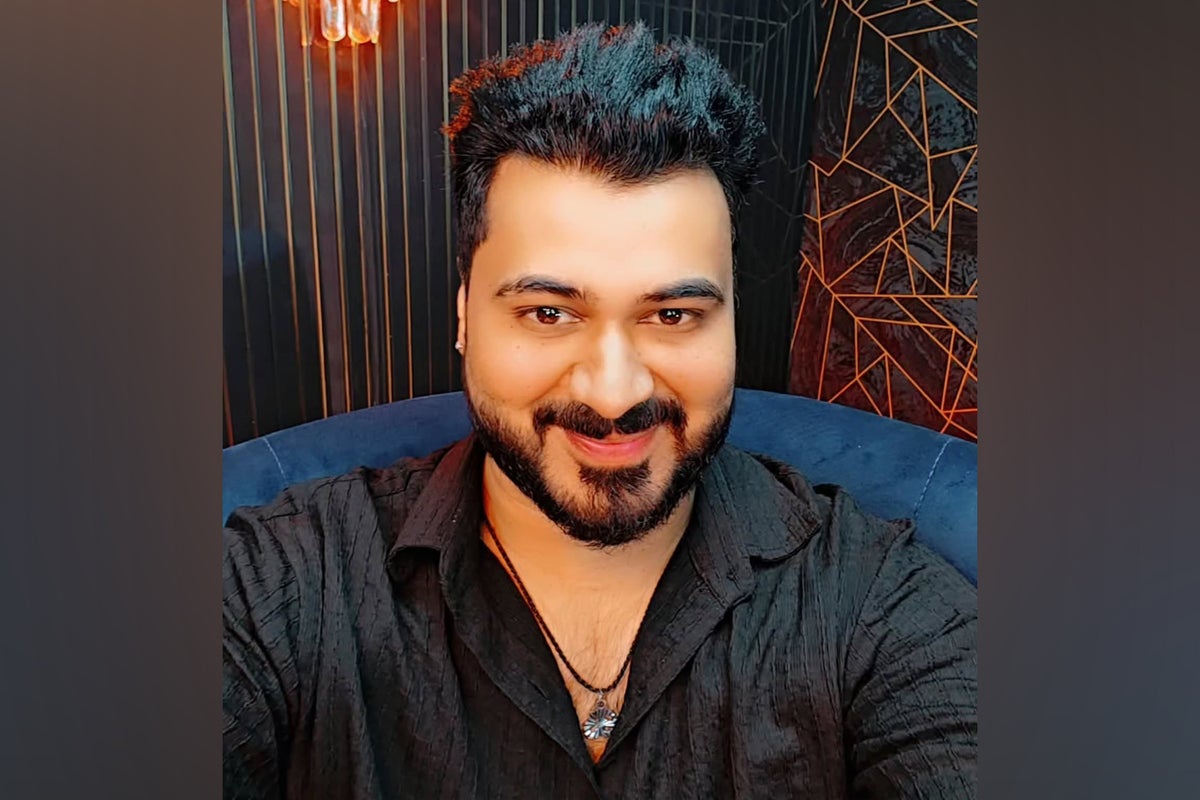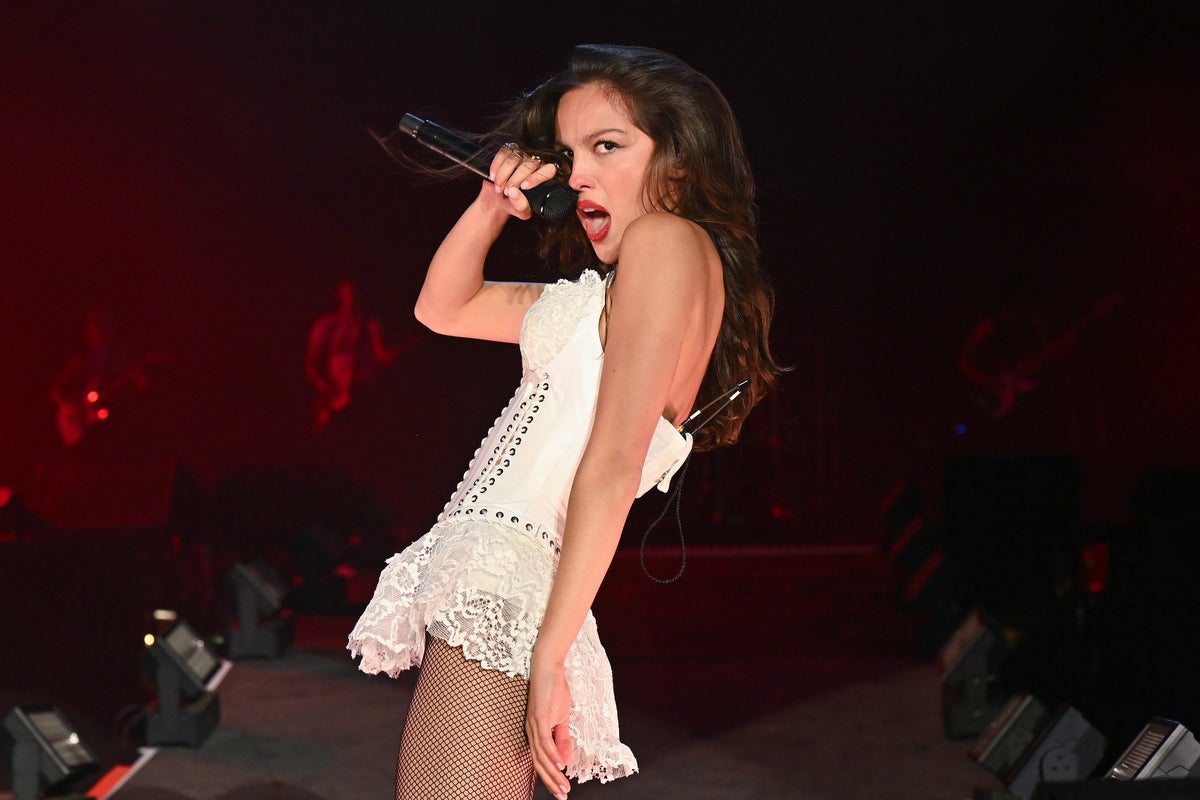At what point do grown women stop being teenage girls? It’s a question answered by Olivia Rodrigo’s catalogue and the answer is: never. A packed Pyramid Stage crowd exorcises the ghosts of ex-boyfriends past into the darkening night as Rodrigo pogos her way around the enormous stage with an energy a Sunday crowd gamely tries to match. Joined by a band, she makes the stage feel as intimate as a high-school prom with all the adolescent feelings that go with it. It’s almost a shame for anyone who’s never had their heart broken to be here: what are you getting from Rodrigo’s show if not the chance to share that specifically painful rage with 120,000 other people?
Last time Olivia Rodrigo played Glastonbury, it was 2022, she was in the first flush of fame and transcendent in the mid-afternoon sun. An audience of grown-ups embraced their inner 17-year-olds and Lily Allen came out to sing “F*** You” with her on the Other Stage. Here, in 2025, all day gaggles of pre-teen girls have appeared as if from nowhere – have they been here all weekend? – with Guts-branded socks and sparkly, much-adored outfits.
During the set, the girls are everywhere: aloft on shoulders, crying at the barrier, screaming lyrics into each others’ faces and flashing pictures of their ex-boyfriends on their phone screens (during “Deja Vu” and such a flex, I wish I’d been that put together just once in my entire life). For the older girls in the crowd, it feels like we are adrift in time and space: 15 and 40 and 27 and 35 and 68 and 76 all at once. Some things never change, and the sting of betrayal is one: the lung-crushing horror of heartache is another. Rodrigo is fluent in both.
She brought out Ed Sheeran at her London show on Friday, and as she introduces “one of the greatest British songwriters” tonight, it seems that we are in for another dose of the ginger one. But in a goosebump-inducing U-turn, out comes The Cure’s Robert Smith for two absolutely divine duets: “Friday I’m In Love” and “Just Like Heaven”. The ageing goth seems at first befuddled and then delighted by the whole thing, and the duo shoot reassuring glances at each other as they trade lines.
That’s it for guests, but Rodrigo doesn’t need them. One second she’s high-kicking as pyro flares, the next she’s crawling around on an underfloor camera. Then she’ll yell to the top of the Pyramid hill before running to clasp hands with the kids at the barrier. She’ll headbang on the final cymbal crash of a song and revel in sharing guitar duties with her band (all female or non-binary, and all cooler than anyone you’ve ever met in your life). She’s having such a lot of fun that even if you aren’t a fan, it seems impossible not to enjoy.
The setlist isn’t wildly different to her touring set, and the British fetishisation wears a bit thin (did we need the union jack hotpants when the country is currently a hot mess?), but the minor irritations do nothing to detract from the overwhelming thrill in the crowd. When Rodrigo sings “Vampire”, a banger she drops like it’s nothing three songs in, you have to wonder how incredible it feels to hear a hundred thousand people yell your diss track into the night. Whether it’s about Taylor Swift or some other bad friend doesn’t matter: Rodrigo’s knack for tapping into that universal experience of betrayal gets everyone screaming. That knack and those screams are particularly evident during “Driver’s License” and “Traitor”, both performed at the piano: the crowd is so deeply in their feelings that it feels like any deadbeat ex in the vicinity would burst directly into flames.

Unfortunately for those whose deadbeat exes are actually in the crowd, the pyro is left to the stagehands and the traditional Glastonbury closing fireworks leave smoke trails in the air long after Rodrigo bounces off stage. As the audience disperses into the night, every overheard soundbite is a variation on “that was amazing”. And truly it was: a killer headline set, a therapy session, an immersive theatrical experience and a Glastonbury Moment™ that no one who was there will soon forget.


